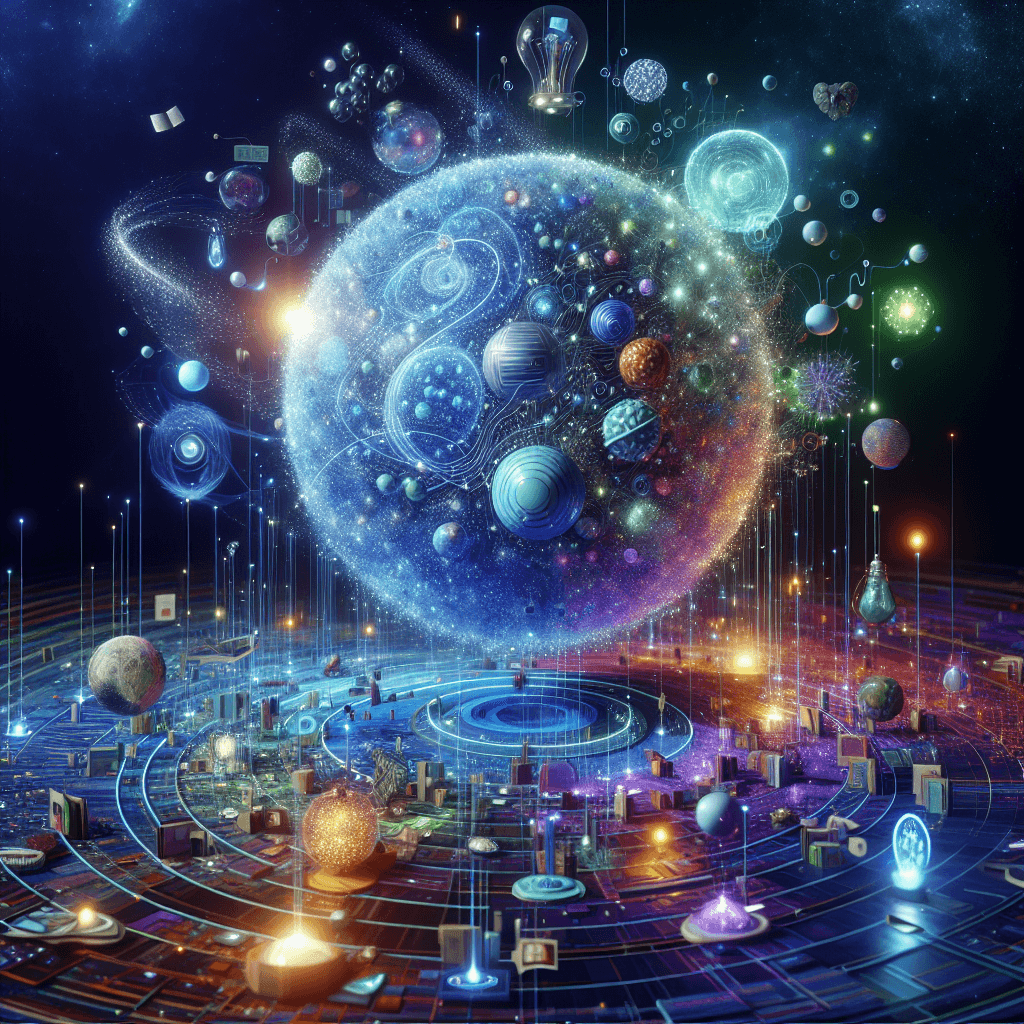Leveraging AI for Personalized Learning Experiences

Leveraging AI for Personalized Learning Experiences
In today’s fast-paced world of educational technology, artificial intelligence (AI) is revolutionizing how we approach learning experiences. With the integration of AI into education, personalized learning has emerged as a powerful tool to tailor content specifically to students’ needs and pace. This blog post delves into the exciting ways AI-driven solutions are being utilized to create more effective and engaging educational environments.
Introduction
The traditional one-size-fits-all approach often falls short of meeting the diverse needs of students. With advancements in educational technology, educators now have innovative tools that transform learning into a personalized journey for each student. AI is leading this transformation, offering insights and capabilities once thought impossible. By harnessing these technologies, we can create tailored educational experiences that resonate more deeply with learners.
Understanding AI-Powered Personalized Learning
AI-powered personalization in education utilizes algorithms to analyze vast amounts of data about students’ learning behaviors, preferences, and performance. This allows for the creation of individualized learning paths that adapt dynamically as a student progresses. Let’s explore the core components that make personalized learning effective through AI.
How AI Personalizes Learning
AI enhances learning experiences through various mechanisms:
- Data Analysis: AI systems gather data on students’ interactions with educational content, including time spent on tasks, areas of difficulty, and patterns in behavior.
- Adaptive Content Delivery: Using the collected data, AI can adjust the complexity and style of content to better suit each learner’s needs.
- Predictive Analytics: By anticipating potential challenges a student may face, AI enables educators to intervene proactively with additional resources or modified lesson plans.
- Feedback and Assessment: AI provides real-time feedback on performance, helping learners understand their progress and areas needing improvement.
The Role of Educational Technology in Personalized Learning
Educational technology serves as the backbone for implementing personalized learning strategies, encompassing tools and platforms designed to enhance teaching and learning experiences. Here’s how these technologies support AI-driven personalization:
Integrating Student Engagement Tools
- Interactive Platforms: Including gamified environments, virtual reality simulations, and quizzes that make learning more engaging.
- Learning Management Systems (LMS): LMS platforms enhanced with AI capabilities track student progress and offer personalized recommendations.
- Customizing Curricula with Adaptive Learning Platforms Powered by AI: These platforms adjust content delivery based on each learner’s pace and understanding.
Case Studies of Successful Implementation
Khan Academy, for instance, leverages machine learning algorithms to recommend practice exercises tailored to individual learning gaps, ensuring students receive the most relevant material at any given time. Similarly, Duolingo uses AI to customize language learning paths, adjusting difficulty levels based on user performance and engagement metrics.
The Effectiveness of Gamification Techniques in Online Education
Gamified environments like those used by platforms such as Duolingo not only enhance student interaction but also boost retention rates through rewards and challenges. These techniques can significantly increase motivation by aligning educational tasks with personal interests, leading to more sustained engagement over time.
Enhancing Student Engagement
AI enhances student engagement through interactive and adaptive tools. Gamified learning experiences, like those found in platforms such as Khan Academy and Duolingo, make education more dynamic and aligned with students’ interests. The effectiveness of gamification techniques in online education environments is notable, encouraging continuous interaction and improvement.
Real-World Examples
Consider the case of Pearson Education, which integrates AI into its educational resources to provide data-driven insights and tailored content. Their platform utilizes AI to analyze student interactions, offering educators actionable recommendations to personalize learning experiences further.
Benefits of AI in Education
The main benefits include:
- Improved Understanding: Tailored content enhances comprehension by focusing on individual strengths and weaknesses.
- Increased Motivation: Interest-aligned activities keep students engaged and excited about their education.
- Data-driven Insights for Educators: Teachers gain valuable information to refine instructional strategies, ensuring each student receives the support they need.
- Efficiency in Administrative Tasks: Automated grading systems free up time for educators to focus on more impactful teaching responsibilities.
Challenges of Implementing AI-Powered Personalized Learning Systems
While the potential benefits are significant, schools may encounter several challenges when implementing AI-powered personalized learning systems:
- Data Privacy and Security: Ensuring sensitive student information is protected requires robust security measures and compliance with regulations like GDPR or FERPA.
- Algorithmic Bias: AI models can inadvertently perpetuate biases present in training data. It’s crucial to regularly audit these systems to ensure fairness and accuracy.
- Technological Infrastructure: Schools must have the necessary hardware and software infrastructure to support advanced AI applications, which may require significant investment.
- Cost Management: Implementing new technologies involves upfront costs for development, deployment, and ongoing maintenance. Budget constraints can be a limiting factor for many institutions.
Can AI Replace Teachers in the Classroom?
AI is designed to augment rather than replace teachers. It provides valuable tools and insights that support educators but cannot replicate the empathy, creativity, and nuanced understanding of human instructors necessary for comprehensive education. Teachers play an irreplaceable role in fostering critical thinking, emotional intelligence, and interpersonal skills, which are crucial components of holistic learning.
Future Prospects of AI in Education
As AI technology continues to evolve, its impact on education will likely expand further. Emerging trends include:
- AI Tutors: Virtual tutors capable of providing one-on-one instruction and support outside traditional classroom settings.
- Natural Language Processing (NLP): Enhanced communication tools that facilitate more intuitive interactions between students and digital platforms.
- Adaptive Assessments: Testing systems that dynamically adjust based on student responses, offering a more accurate measurement of learning progress.
The future holds exciting possibilities for AI in education, promising to transform how we teach and learn. By embracing these advancements, educators can create more personalized, engaging, and effective educational experiences for all students.
